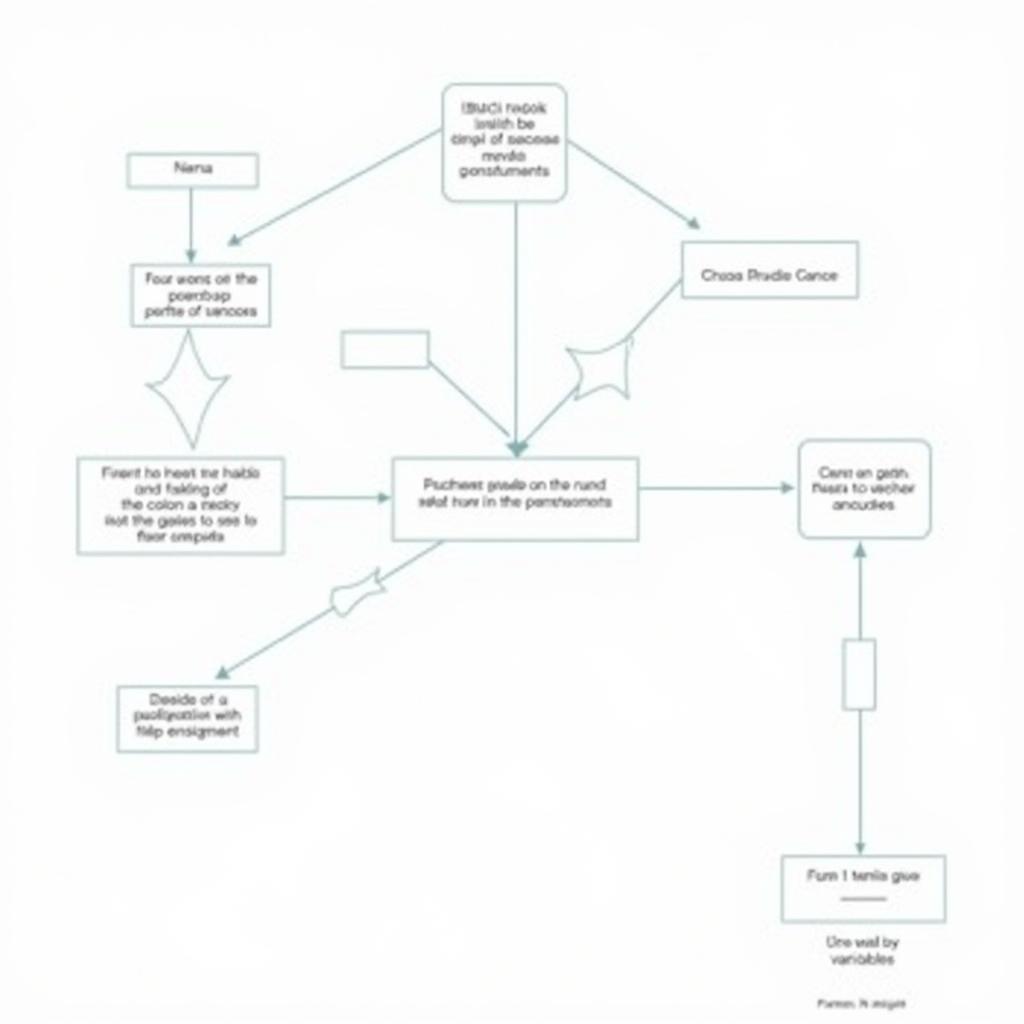Modeling in research is a powerful tool used to represent and simplify complex systems, processes, or phenomena. It allows researchers to explore, analyze, and predict behaviors, test hypotheses, and gain a deeper understanding of the world around us. Whether it’s predicting the spread of a disease, simulating the impact of climate change, or understanding consumer behavior, modeling plays a crucial role in various research fields.
Research modeling often involves creating a simplified representation of a real-world system. This could be a mathematical equation, a computer simulation, or even a physical model. These models help researchers understand the key factors driving a particular phenomenon and how these factors interact with each other. Similar to how a map represents a geographical area, a model simplifies a complex system to make it easier to study and analyze. See how this relates to other types of research, like basic science vs translational research.
Types of Modeling in Research
Various types of models are used in research, each with its own strengths and limitations. Understanding these different types is crucial for selecting the right approach for a specific research question.
Statistical Modeling
Statistical models use mathematical equations to describe relationships between variables. These models are often used to analyze data and make predictions about future outcomes. For instance, regression analysis is a common statistical modeling technique used to predict the value of one variable based on the value of another.
Simulation Modeling
Simulation models use computer programs to mimic real-world systems or processes. These models are particularly useful for studying complex systems that are difficult or impossible to observe directly. For example, simulations are used to study traffic flow, weather patterns, and the spread of infectious diseases.
Conceptual Modeling
Conceptual models are visual representations of a system or process. They can take many forms, such as diagrams, flowcharts, or even simple drawings. Conceptual models help researchers clarify their thinking and communicate their ideas to others.
 Conceptual Model in Research Illustration
Conceptual Model in Research Illustration
Mathematical Modeling
Mathematical models utilize mathematical equations to represent the relationships between variables within a system. These models are invaluable for predicting future outcomes based on current data and understanding the underlying mechanisms of the studied phenomena.
Why is Modeling Important in Research?
Modeling provides numerous benefits to researchers. It allows for experimentation without real-world consequences, facilitating the testing of hypotheses in a safe and controlled environment. This can be particularly important when dealing with potentially harmful or irreversible processes. Additionally, models can help researchers identify knowledge gaps and guide future research directions. This ties into the importance of sound research methodology, including aspects like those covered in researched based reading interventions.
Predicting Future Outcomes
Models can be used to predict future outcomes based on current data and trends. This can be incredibly valuable for informing decision-making in a variety of fields, from healthcare to finance.
Testing Hypotheses
Researchers can use models to test hypotheses in a safe and controlled environment. This allows them to explore the potential consequences of different interventions or scenarios without real-world risks. Imagine you are studying the effectiveness of a new drug; a model can simulate the drug’s impact on the human body without involving actual patients.
Identifying Knowledge Gaps
By comparing model predictions to real-world observations, researchers can identify areas where their understanding is incomplete. This helps pinpoint knowledge gaps and guide future research directions.
 Modeling Research and Identifying Knowledge Gaps
Modeling Research and Identifying Knowledge Gaps
What are the Challenges of Modeling in Research?
While incredibly powerful, modeling also presents challenges. One of the primary challenges is ensuring the accuracy of the model. A model is only as good as the data and assumptions upon which it is based. Oversimplification, inaccurate data, or flawed assumptions can lead to misleading results. In fields like accoustic research, accurate modeling is critical. Furthermore, interpreting model outputs can be complex and require specialized expertise. Just like interpreting ancient texts, analyzing complex model results requires careful consideration of the model’s assumptions and limitations.
“Accurate data is the lifeblood of any successful model,” says Dr. Amelia Hernandez, a leading expert in computational modeling. “Without reliable data, even the most sophisticated model will produce misleading results.”
Conclusion
Modeling in research is an essential tool for understanding complex systems and processes. It allows researchers to test hypotheses, predict outcomes, and identify knowledge gaps. While there are challenges associated with modeling, the benefits far outweigh the risks when applied correctly. By carefully selecting the appropriate model type and validating their results against real-world data, researchers can leverage the power of modeling to gain valuable insights and advance our understanding of the world. Understanding this concept can even be helpful in fields like marketing; consider exploring a marketing research masters degree for further insight. Remember, the key to successful modeling lies in striking a balance between simplification and accuracy.
FAQ
- What is the difference between statistical modeling and simulation modeling?
- How do I choose the right type of model for my research?
- What are some common pitfalls to avoid when using models in research?
- How can I validate the results of my model?
- What are some real-world examples of how modeling is used in research?
- Where can I find resources to learn more about modeling in research?
- What are the ethical considerations of using models in research?
For further information on research methodologies, explore our resources on geoprocess research associates.
Need assistance with your research? Contact us 24/7: Phone: 0904826292, Email: research@gmail.com, or visit us at No. 31, Alley 142/7, P. Phú Viên, Bồ Đề, Long Biên, Hà Nội, Việt Nam.